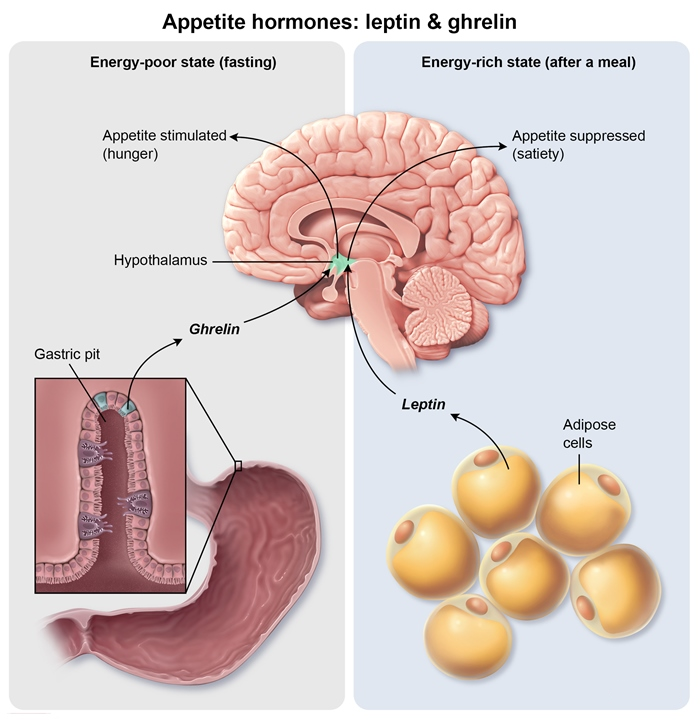Leptin vs Ghrelin
After a meal, the body is in an energy-rich state (ie, high concentrations of glucose and lipids)
- As a result, the hormone leptin is released by white adipose to trigger feelings of satiety by communicating to the hypothalamus in the brain that the stomach is full, thereby suppressing appetite.
- In general, the greater the adipose tissues stores, the higher the leptin levels in the serum.
The passage states that ob/ob mice are leptin deficient, signifying that white adipocytes are unable to produce/release leptin, which in turn causes undetectable serum leptin levels.
- Consequently, the hypothalamus never receives the satiety signal (ie, leptin) to suppress appetite and cease food consumption, and this leads to severe obesity.
An obese individual (BMI of ) with a similar pathology would therefore never achieve adequate appetite suppression due to absent leptin production.
- This person would experience constant hunger and engage in constant hunger and engage in constant food-seeking behavior and food consumption, which would in turn cause continuous weight gain.
In leptin dificiency, whether or not leptin can bind its receptor would not be the reason why leptin levels are undetectable in the serum.
- Instead, the absence of leptin in the circulation would be caused by a lack of leptin production by white adipocytes.
In a fasting or energy-poor state (ie, low concentrations of glucose and lipids), the hormone ghrelin (not leptin) is released by gastric cells in the stomach wall to trigger feelings of hunger by communicating to the hypothalamus that the stomach is empty, thereby increasing appetite.
- In an energy-rich state (eg, after a meal), leptin is released by white adipocytes to trigger appetite suppression via the hypothalamus.
- In contrast, in an energy-poor state, ghrelin is released by stomach gastric cells to trigger hunger and food seeking behavior via the hypothalamus.
#hormone
